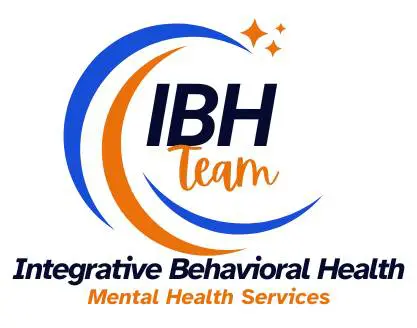
Fees
We believe that quality mental health care should be both accessible and affordable. Our fees accommodate various payment methods and adhere to national standards regarding time spent with a patient and the time allowed for documentation.
- Initial Evaluation
- $180-$240 | 53-60 minutes
- Your first step towards better mental health starts with a comprehensive initial evaluation. This helps us to understand your unique needs and tailor a personalized care plan just for you.
- Follow-up Sessions
- $120-$180 | 38-53 minutes
- Follow-up sessions are designed to provide ongoing support and guidance. These sessions help you stay on track with your treatment goals, offering consistent, compassionate care.
- EMDR & Couples Therapy (self-pay service only)
-
$220 Initial Assessment | 60 minutes
$180 Follow-Up Session | 60 minutes - MDR and Couples Therapy sessions may require extended durations. In such cases, each additional 15-minute increment will be billed at a rate equivalent to one-quarter (25%) of the full session fee.
Fees for Completing Forms, Assessments, and Reports:
- Out of work Letter $100
- Accommodation Forms: $200
- Emotional Support Animal Letter: $200
- Substance Abuse Assessments: $300
- Psychosocial Assessments: $350
- Immigration Reports: $500
Fees for Time Spent Communicating with Third Parties:
- Consultation with Third Parties (per hour): $150
- This includes communication with attorneys, medical providers, or other involved professionals via phone, email, or meetings.
Court Appearance Fees:
- Court Preparation, Appearance & up to 10 miles/travel (per hour): $500
- A minimum of 4 hours is required for court appearances.
- This fee includes preparation time, travel time, and the actual time spent in court.
- Full-Day Court Appearance: $1,200
- Flat fee for full-day hearings or trials, depending on complexity and time involved.
Insurance
We accept the following insurance plans. When scheduling an appointment, please confirm that your selected provider is in-network with your insurance.
- CareFirst
- Cigna
- Cigna EAP
- Blue Cross
- Blue Shield
- Aetna
- John Hopkins EHP
- Maryland Medicaid
- Medicare
- Optum Behavioral Health
- Tricare
- United Healthcare
- Out-of-Network Insurance
We can provide superbills for reimbursement if your insurance is out-of-network, making it easier for you to manage your expenses while receiving services from us.
We can help you navigate your policy's details, including deductibles, co-payments, co-insurance, in-network, and out-of-network coverage.
Why Can't I Use my insurance for EMDR or Couples Therapy?
The sustained cost of EMDR therapy exceeds the reimbursement rate offered by most insurance companies. Couples therapy for relationship issues like communication or infidelity do not receive a mental health diagnosis and is not reimbursable by insurance.


Good Faith Estimate
Under Section 2799B-6 of the Public Health Service Act, health care providers and health care facilities are required to inform individuals who are not enrolled in a plan or coverage or a Federal health care program, or not seeking to file a claim with their plan or coverage both orally and in writing of their ability, upon request or at the time of scheduling health care items and services, to receive a “Good Faith Estimate” of expected charges.
You have the right to receive a “Good Faith Estimate” explaining how much your medical care will cost.
Under the law, health care providers need to give patients who don’t have insurance or who are not using insurance an estimate of the bill for medical items and services.
You have the right to receive a Good Faith Estimate for the total expected cost of any non-emergency items or services. This includes related costs like medical tests, prescription drugs, equipment, and hospital fees.
- Make sure your health care provider gives you a Good Faith Estimate in writing at least 1 business day before your medical service or item. You can also ask your health care provider, and any other provider you choose, for a Good Faith Estimate before you schedule an item or service.
- If you receive a bill that is at least $400 more than your Good Faith Estimate, you can dispute the bill.
- Make sure to save a copy or picture of your Good Faith Estimate. For questions or more information about your right to a Good Faith Estimate, visit cms.gov/nosurprises or call 800-985-3059.


Mental Health Resource Links
The following links are for information purposes only.
Associations & Institutes
- American Academy of Child & Adolescent Psychiatry
- American Association for Marriage and Family Therapy
- American Counseling Association
- American Psychiatric Association
- American Psychological Association
- American Psychological Society
- Center for Mental Health Services
- Mental Health America
- MentalHealth.gov/
- National Institute of Mental Health
- National Mental Health Association
- National Eating Disorders Association
- National Sleep Foundation
- National Women’s Health Resource Center
- The National Child Traumatic Stress Network
- NAMI (National Alliance on Mental Illness)
- Substance Abuse and Mental Health Services Administration
- Centers for Disease Control and Prevention (CDC)
Suicide Awareness and Hotlines
Depression
Anxiety Disorders
Obsessive-Compulsive Disorder (OCD)
Posttraumatic Stress Disorder (PTSD)
- National Center for PTSD
- Give an Hour— for veterans and their families
- National Center for PTSD
- Real Warriors (U.S. Department of Defense)— for veterans and their families
- The Gift From Within
- Sidran Institute
Addiction and Recovery
Eating Disorders
Attention-Deficit Hyperactivity Disorder
Child Abuse and Domestic Violence
Developmental Disorders
Diagnosis
Medication
- DrugWatch.com provides up-to-date information about prescription and over-the-counter medications, including details about associated side effects.
- Drugalert.org is a comprehensive database with information and news alerts about potentially dangerous drugs currently on the market or previously available worldwide.
